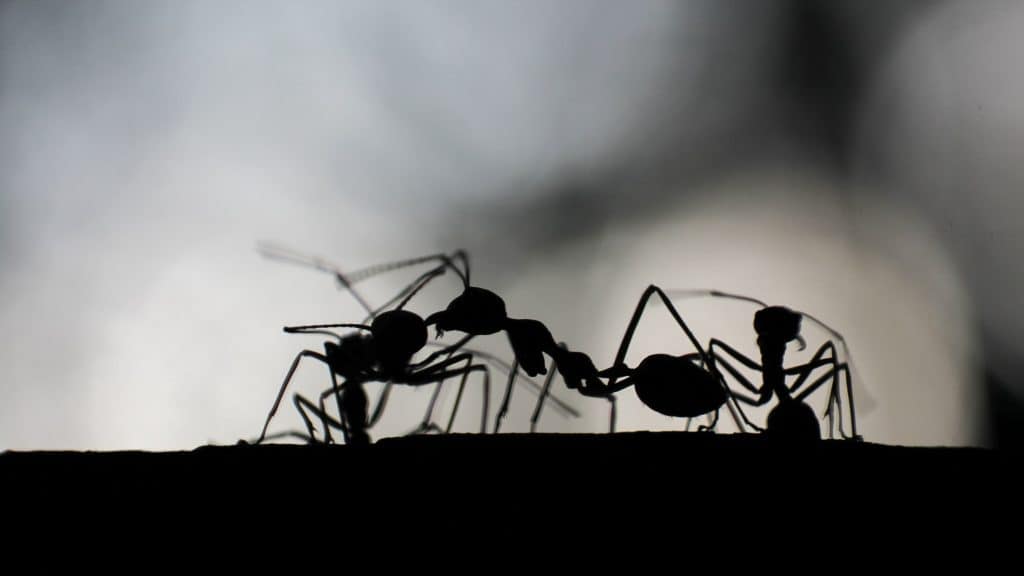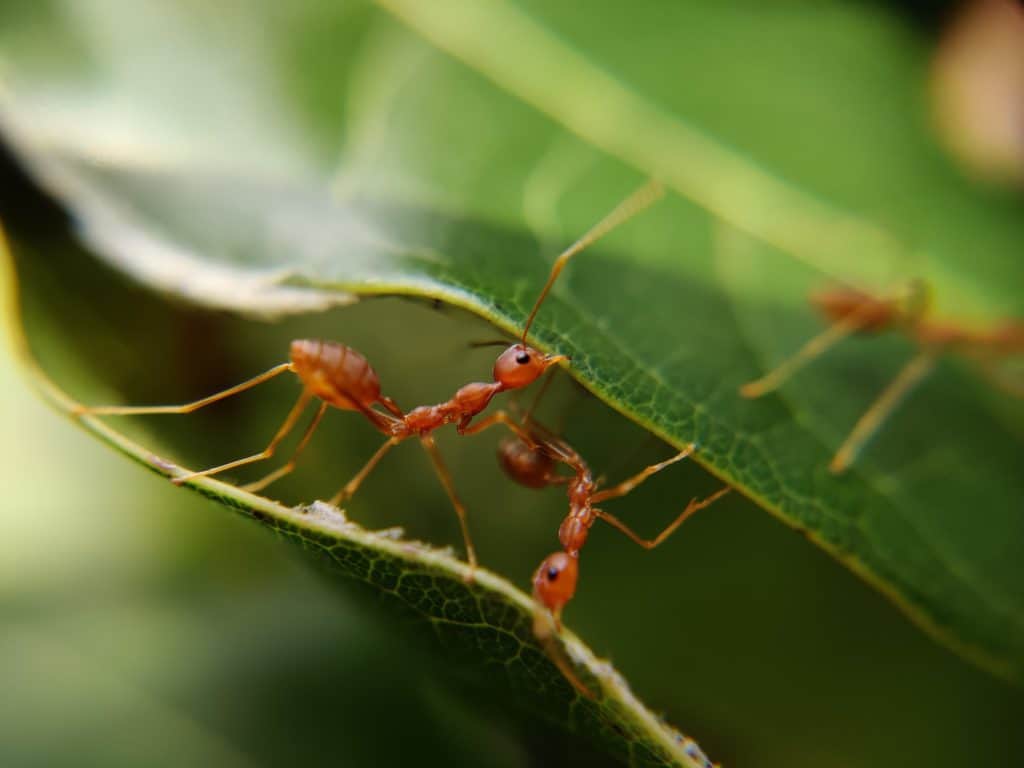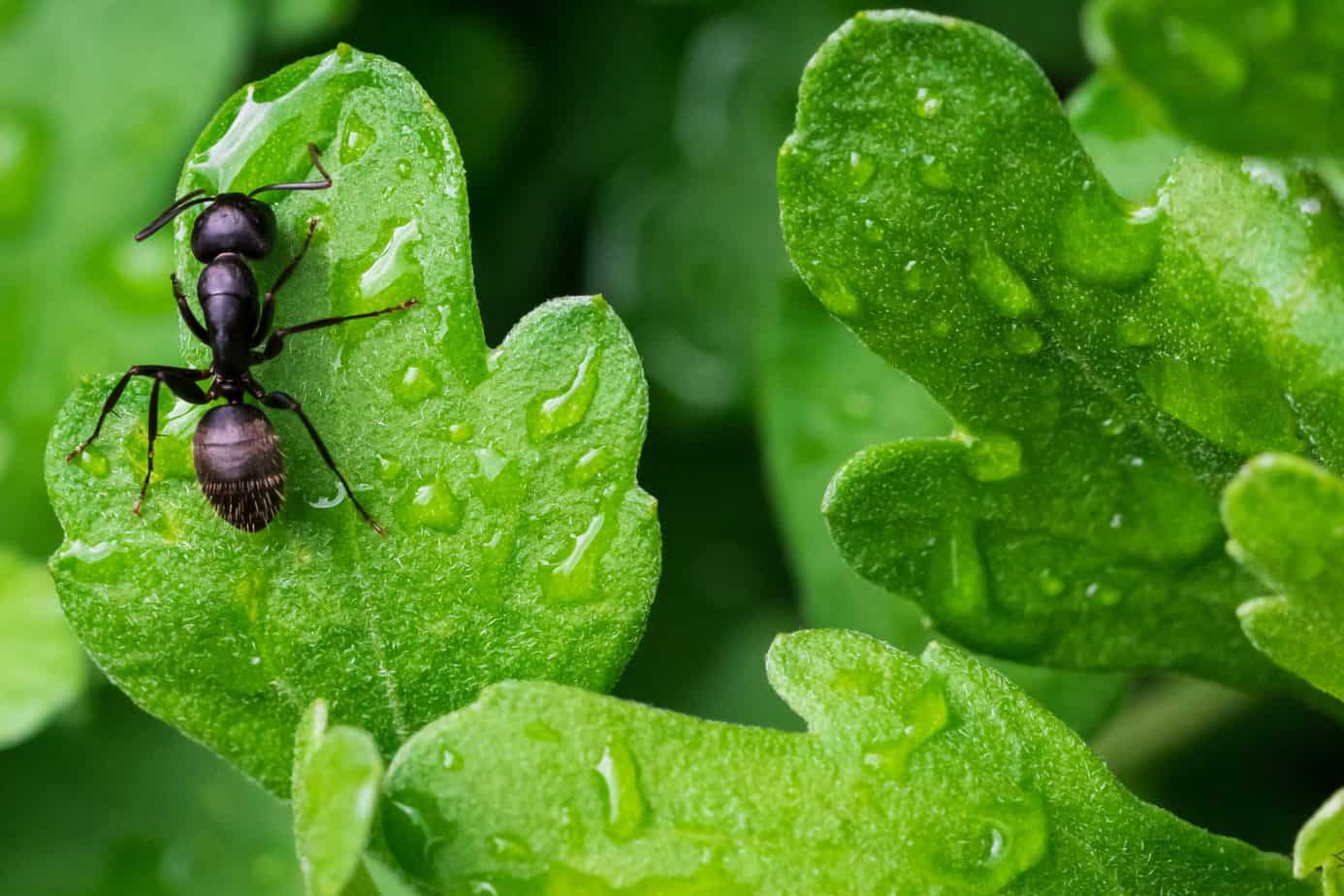Black garden ants are often seen as pests that need to be eliminated, but they actually play many beneficial roles in our gardens and environment. Ants help aerate the soil while pollinating flowers, spreading seeds through seed dispersal, or cleaning up dead plant material on the ground; all of which is essential for ecosystem balance!
However, there might be an exception when it comes to their ability to break down wood-based sediments like those found near riversides where too many nutrients can lead Certain types of ants to perform better than others depending upon what task you assign them ( Some ants prefer jobs related specifically with This Is My Garden!).
Ants are essential to any natural ecosystem. Some types of ants may be pesky, but they all work together in fascinating ways!
The 12,000 species that exist across the world can provide benefits or drawbacks depending on what you want from them–so it’s important not only to understand which type is living near your home today but also how these animals fit into larger landscapes.
The Black Garden Ant isn’t traditionally associated with pests – though its name suggests otherwise-and has some interesting characteristics specific to this particular colony lifestyle.
Also, read DIY deck shade ideas for making your garden exquisite.
Table of Contents
Why Do Black Ants Are Friends?

Black garden ants are the most overlooked creatures in our gardens, but they’re really important. They help us by removing dead leaves and other organic matter from around plants so that we don’t have as much of it all over!
When you see them carrying away interesting-looking objects like aphids or Scale insects between their antennae; this is what’s called “scraping” – where each individual ant displays impressive strength for its size (upwards into ounce).
Best Gaurdians
Found on buds and flower petals, ants protect plants from destructive insects by attacking them. When feeding at this beautiful rose garden in Boston’s Public Garden they are protecting both peony flowers as well as other plant life with their acidic nectar which can make digestion difficult for pest species if ingested whole or applied to painted surfaces like leaves where it may cause wounds over time!
Enhance Spreading
The black garden ants are the best at spreading seeds around. They literally transport them from place to another, sometimes even kilometres away!
Some wildflowers rely on these little guys for their survival too – not just giving out flowers but providing food sources as well by eating other plant life that might be growing nearby or dead below ground level due to natural disasters like fires etc.,
Do Check: 5 useful facts about Hosta Bulbs.
Protection
The black garden ant is a species that likes to hunt down and eat pesky insects like aphids, fly larvae, or fleas. Unlike some other types of ants which may be seen as pests themselves in your home’s ecosystem because they feed on these same organisms.
Great Pollinators
The black garden ants are beneficial pollinators because they help spread pollen from flower to flower much as bees do. Usually, this happens when these insect species find themselves near a food source while on their journey and then traveling along communicating various types of seeds or plants with which it has come into contact for future growth;
However, some scientists believe that all ant trails may serve as roads used by fellow insects who transport goods long distances between settlements–just like how human beings might use cars!
They Hard Work For You
The ants are my heroes! They make me think that with hard work and determination anything is possible. When I see them tunnel through the dirt hauling large amounts of soil behind themselves, it inspires a sense in which they’re always digging for new opportunities-not just while making their homes but also every day tasks like farming grazing trees to provide us all with oxygen (and other things).
Food Source For Carnivores
Black garden ants are actually an essential food source for many animals and insects. They provide the necessary nutrients to keep our planet’s ecosystems functioning properly by feeding on plants, which in turn feed other wildlife members of this natural cycle like birds, spiders etcetera!
So if you want your backyard pest-free? These pesky creatures are important – unless we’ll be left with no more life forms surviving.
Enriches The Soil
Ants are essential for breaking down organic matter in the garden and releasing nutrients. They can’t digest cellulose, so their diet consists mainly of dead insects or funguses that contain lots of phosphorus to help them grow stronger legs!
Some Drawbacks
Black garden ants are often seen as a beneficial species because they feed on plants and help control pest populations. However, their black coloration masks other ant types that may be present in your yard – making it difficult to tell which type you’re dealing with without knowing what else looks similar!
Structural Damage
When the carpenter ant enters your home or workplace, it can cause serious damage to structures like wooden buildings and furniture. The black insect is often seen as a pest because its main food source – wood-based materials such as bookshelves; decks of cards (especially those made from synthetic material); insulation in homes etc., will be eaten away by their sharp mandibles until there’s nothing left but dust!
In addition, these pesky creatures may create hidden spots where moisture condenses leading not just fungi growths within gaps between boards but also mold spores which could trigger dangerous respiratory illnesses if inhaled without protection.
Painful Sting
Some ants in certain regions of America can give you a painful bite. When their jaws break apart, it gets full of germs which causes tiny pimples on human skin! These types should not become part of your garden.
Preventing Black Garden Ants

When we think about ants in the garden, one type that comes to mind is black garden ants. These pesky little creatures can be both beneficial and harmful depending on how you look at them!
However, there are rare occasions when they may become a problem for homeowners which will require some natural methods of controlling these pests without using chemicals or other invasive techniques like pesticides.
Ways?
There are many ways to get rid of ants. You can use boiling water, diatomaceous earth (DE), or organic insecticidal soap to spray them directly in the face so they have no time for nesting.
They will reproduce less often due to genetic damage caused by their reproductive organs being erosion-prone.
So, that was it about our little friends. make sure you also check out some tips on bees and gardening from our experts that can be great for your commercial gardening.

